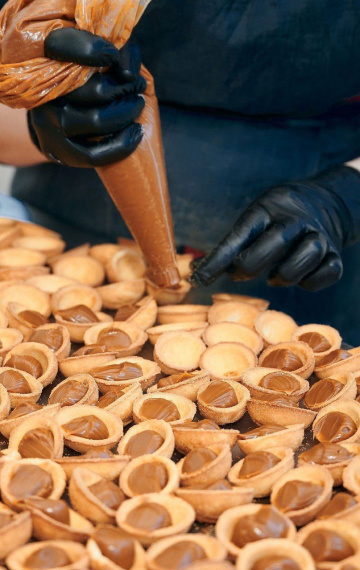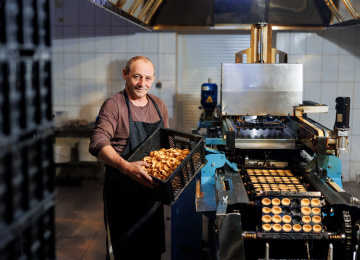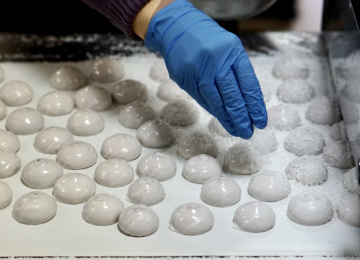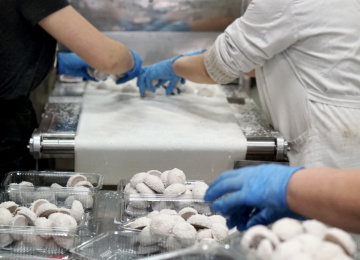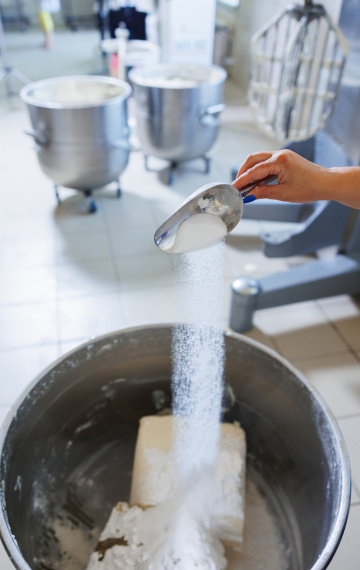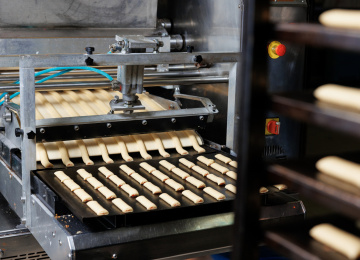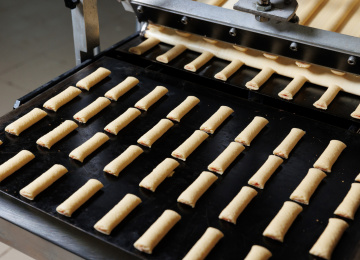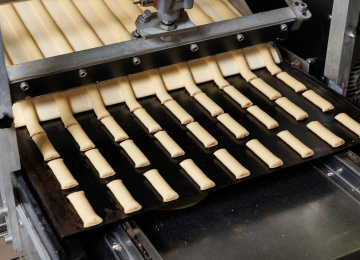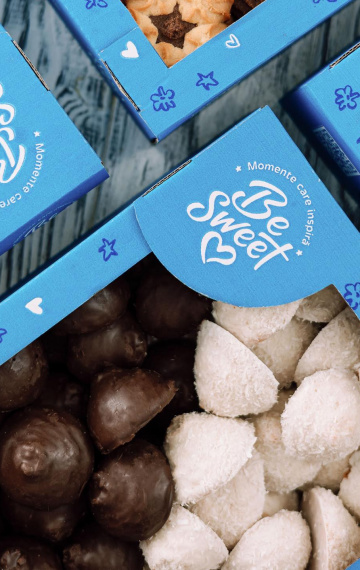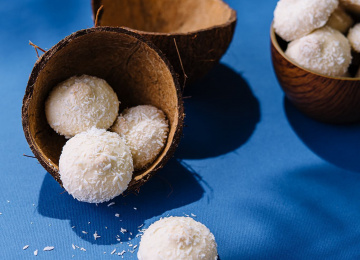
BeSweet, a Chișinău-based cookie brand, has redefined cookie baking in Moldova, elevating product quality in the local biscuit market.
The young company was founded only in 2015, when Tatiana and Leonid Grigoriev, a family of food engineers with a taste for innovation, decided to venture into business. Tatiana, a 30-year baking expert, created delectable recipes, while Leonid, with three decades of engineering experience, selected top-notch machinery and streamlined operations.
Today the couple’s daughters, Nadejda Cornetel and Iulia Grigoriev, have taken up the day-to-day running of the business.
Sweet beginnings
From the start, BeSweet took a unique approach by introducing cookies with delightful fillings, a departure from traditional plain biscuits, and their gamble has paid off over the years.
The company now boasts an impressive range of 22 products, present in every chain of supermarkets across Moldova. BeSweet cookies have also made their way onto the shelves of supermarkets in neighbouring Romania, where the demand is steadily on the rise.
BeSweet's commitment to innovation brings new products each year in a competitive market, but their focus on balanced flavors, quality, and customer service sets them apart.
“We pride ourselves on the fact that if we promise that we will deliver an order, we'll actually do it on time,” Iulia says, adding that the company has been growing by up to 25% each year.
Initially comprising just 15 members, the production team has since expanded to over 40 dedicated individuals. Embracing automation has not only allowed this growth but also quadrupled the company's production capacity.
But just as for every other enterprise in recent years, BeSweet’s journey has not been an easy ride.
Resilience amid adversity
In 2020, the COVID-19 pandemic presented substantial challenges for BeSweet. Nadejda and Iulia swiftly adapted to oversee their production team amid disruptions, navigate ingredient shortages caused by border closures, and address logistical obstacles. Despite these difficulties, they modified their working practices to maintain uninterrupted operations in response to the sustained demand for their products.
But even as the pandemic subsided, another major crisis hit BeSweet and other companies – Russia’s invasion of Ukraine.
“The war brought shortages of ingredients,” Nadejda says. “From Ukraine and Russia, we reoriented to ingredients from Romania, from Western Europe. But these were much more expensive, and costs were rising very significantly.”
“As you can imagine, sometimes we had, for example, raw materials for just one day. The next day, we might not have anything. So sometimes we didn't even know if we’d be able to start production the next day, or what we should do. It was stressful in that sense.”
In this situation, Nadejda, Iulia and their team had to work hard to counter the potential threats to their business. They grappled with the rising costs of production, while struggling to adjust their prices quickly enough to cover escalating expenses, while still having to honour contractual agreements with supermarkets. The company faced substantial losses last year, and they are only now starting on the journey to recovery.
“All these shocks make you more resilient because you try to find new ways to survive changes,” Nadejda says. “And looking back, I think, yeah, maybe we needed such a shock.”
But BeSweet won’t be facing any upcoming challenges alone, as it now has EU support on its side.
Turning blue
This year, BeSweet initiated a transformative rebranding of the company through a EU co-funded project, implemented by EBRD. A shift from the previous greyish colour palette on product packaging to a distinctive new blue colour has not only made BeSweet’s products more eye-catching on supermarket shelves, but also promises to significantly enhance the company’s brand recognition. The comprehensive rebranding extends from packaging to BeSweet’s.
BeSweet received support under the Women in Business (WiB) programme, backed by the European Union and Sweden, and facilitated by the EBRD, which seeks to enhance women's opportunities in finance and entrepreneurship. This initiative programme provides loans, offers business guidance, and extends support to female entrepreneurs, including access to advisory services, mentoring, and a series of training sessions. As a women-led business, BeSweet secured an arrangement that covered 60% of the rebranding project's budget.
Nadejda and Iulia are also taking part in the Eastern Partnership Working Group for Gender Equality, which is set up by the Directorate-General for Neighbourhood and Enlargement Negotiations (DG NEAR) and European External Action Service (EEAS), with representatives from the governments, civil society, and EU Member States. The group will promote gender equality in policies, program and dialogues. The focus for the first year will be women’s economic empowerment.
As for the future, BeSweet has set its sights on further automation to streamline its production process. The ultimate goal is to minimize manual labour, with packaging being the sole remaining manual step in their operations. This strategic move is motivated not only by cost considerations, but also by increasing challenges in finding and hiring qualified personnel.
And with an eye on expansion, BeSweet is now looking to tap into new customer segments and explore additional markets. As it is currently operating at full capacity during the peak season, the team also recognizes the need for increased production capabilities to accommodate future growth.
“The worst nightmare is when you have a lot of products and you have no customers. That’s not the case for us,” Iulia says.
The challenges over the years have made the sisters close business partners, always ready to communicate and discuss any issues that arise. They highly value the fact that BeSweet is a family business, and they plan to continue working in the same way.
“We don’t always agree with each other, but we can argue for our positions,” Iulia adds.
“The nice thing is that somehow, in a family setting, we’ve always been able to reach agreement.”

